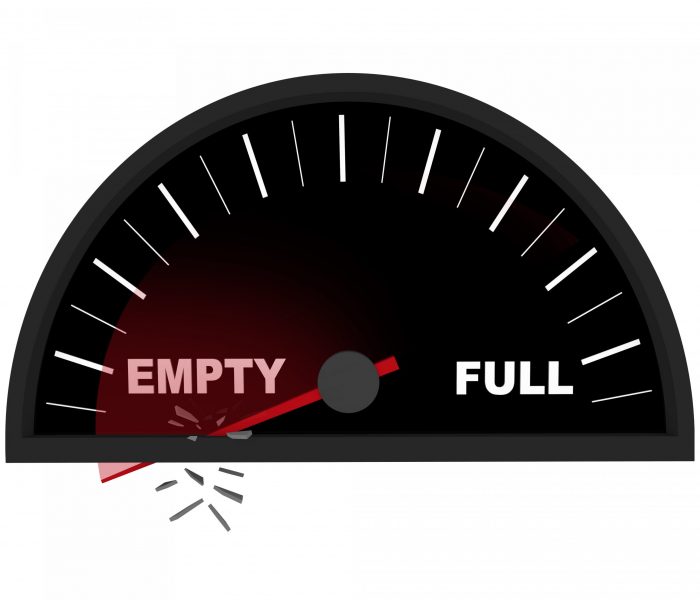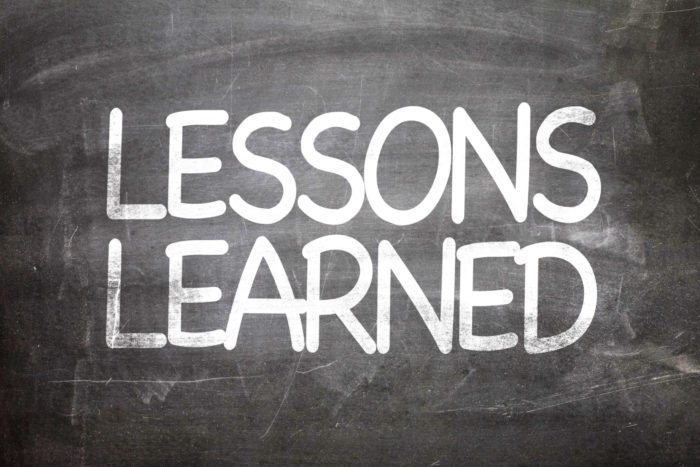58 Ways to Label and Express Your Sadness

Most people don’t talk about their feelings much. In fact, most people don’t even think about their feelings much.
Usually, we just go through our days focused on our jobs, families, problems, and everything going on in our lives without paying much attention to how we feel.
But, here’s the thing. Sometimes, a situation arises that requires you to know what you are feeling. Or, even further, you may even need to express what you are feeling.
Depending on how you were raised, your family’s comfort level with emotions, and their ability to use emotion words, you may find the process of noticing, labeling, and sharing your feelings anywhere from mildly challenging to extremely difficult.
In my work as a psychologist, I encounter wonderful people every day who are stymied or terrified at the notion of having to identify, name, or share what they are feeling. Most of these people find it difficult for a very good reason. In short, when you grow up in a family that ignores, diminishes, dismisses, or discourages the expression of feelings — I call this an emotionally neglectful family — you simply do not learn how to do it.
As an adult, this can make certain things that other people take for granted very, very hard.
For example, many people who grew up with Childhood Emotional Neglect (CEN) have only one or two emotion words in their vocabularies. They may use that one word over and over again, painting the complex landscape of their own inner emotional lives with one single word.
Common emotion words that I hear used this way include:
- Sad
- Mad
- Anxious
- Depressed
How Comfortable Are You With Your Feelings?
- Do you notice when you are having a feeling?
- Do you pay attention to your feelings?
- When you are feeling something, do you try to identify what it is or name it?
- How many emotion words do you know?
There are several skills that go into using and managing your feelings the way they are meant to be used and managed. If you don’t think of your feelings as useful or if you do not know what these skills are, or whether you have them, it’s okay.
Emotional awareness and management are not automatically a part of everyone’s life. But they are things you can definitely learn. I know this because I have taught these emotion skills to many people.
Today, we will address your emotion vocabulary. Guess how many words there are for the feeling of sadness? There are many more than just “sad” or “depressed.”
Read through this list with a highlighter, and think about the subtle differences in what each word describes.
58 Ways to Label & Express Your Sadness
Sorrowful
Tearful
Pained
Grief
Anguish
Desperate
Low
Pessimistic
Unhappy
Grieved
Mournful
Grave
Dismayed
Bummed
Despondent
Heavy-hearted
Scorned
Grey
Miserable
Blue
Longing
Disappointed
Grim
Gloomy
Lost
Moody
Burdened
Discouraged
Let down
Lousy
Dysphoric
Dreary
Dark
Morose
Dour
Besieged
Morbid
Down
Accursed
Abysmal
Ashamed
Diminished
Self-destructive
Self-abasing
Guilty
Dissatisfied
Loathsome
Worn out
Repugnant
Despicable
Abominable
Terrible
Despairing
Sulky
Bad
Sense of loss
How To Use This List Going Forward
Next time you perceive a possible hint of sadness or depression, don’t paint it over with the same old color. Instead, pull out this list and read through it, and find one or more words that capture what you are feeling in a more complex way.
The more you do this, the more your vocabulary will increase and it will also enrich you in other ways. As you struggle to name your feelings, it’s the same as exercising a muscle. Your brain will begin to process feelings in a new way and, believe it or not, this is a momentous change.
Have a word for sad/depressed that’s not on this list? Please share it in a comment!
Childhood Emotional Neglect (CEN) can be invisible and unmemorable so it can be difficult to know if you have it. To find out Take The Emotional Neglect Test. It’s free.
To learn much more about CEN, how it happens, and how it plays out in your adult life, see the book Running On Empty: Overcome Your Childhood Emotional Neglect.
4 Ways You May Be Keeping Yourself Running On Empty

Julie
Julie loves her husband Dom very much, but lately, all they seem to do is fight. Julie wonders how Dom can possibly complain that she’s not home enough lately when he can see how many demands she is juggling.
Bill
Bill struggles to do everything right in life. He has a good job and a family that loves him. Yet he walks through his days feeling numb. As he provides for his family and responds to his boss’s every request, he sometimes wonders what it’s all for. Recently he’s been drinking more than he should.
House, job, family. Parenting, grocery shopping, errands, and social media; we are all people of the world. And in today’s world, our lives are overly full in so many ways. So it’s ironic that so many of us feel so very UN-full.
The feeling of emptiness is elusive. It’s experienced differently by different people. Hardly anyone knows how to put it into words. So you may at times say you’re stressed or down because it’s the best word you can come up with, even though it doesn’t seem to quite capture what you feel.
Even more likely, you say nothing. After all, you may have a life that is actually quite full. And you may assume that everyone feels this way.
4 Ways to Feel Empty
- Numbness: This involves walking through your life with little emotion. You know you should feel more joy, more excitement, more love; and also more sadness, and perhaps more grief. You’re not sure why, but those feelings are just not quite there.
- A physical ache: Almost no one feels this all the time. But you may at times feel an emptiness somewhere in your body. In your belly, throat, chest, or head for example. A deep, painful ache that’s difficult to name, and seems to come from nowhere.
- A feeling of being lost and alone: Surrounded by people, and yet lonely. Lots of places to be, and yet lost. Having people around doesn’t mean you feel that you belong with them. And knowing that you love someone doesn’t mean that you can feel it.
- Over-taxed and joyless: So many commitments and not enough of them are to yourself. You’re there for everyone else’s needs, but what about your own?
Whatever your personal experience of emptiness, the roots of this feeling almost always can be found in your childhood.
We grow up in households that are busy or struggling, and somehow not quite emotionally nurturing enough. From this, we learn everything about how to stay busy and struggle, but little about how to nurture ourselves.
So we grow up looking in all the wrong places for support and fulfillment. We live our adult lives with a sense that something is missing, and no idea how to find it.
4 Ways You May Be Keeping Yourself Running On Empty
- By Being Too Externally Focused: It’s natural in today’s world to be caught up with what’s outside of you: your house, your job, your car, successes, failures, sports, and the weather. Truly, those are all good things. They will provide for you, entertain you, and give you topics at dinner. But they will not fill you up.
- By Ignoring What Emotionally Fills You: Part of being too externally focused is that you may end up not seeing what’s closest to you: You and the people who love you. You may, for example, be so busy with your many commitments that you have little time to enjoy yourself with your family or children. In fact, you may not find yourself enjoying much of anything. Yet you may seldom notice that your joy is missing.
- By Poor Self-Care: Self-care is a way of nurturing yourself. Do you deserve to be healthy? Are you worth the time it takes to buy and prepare healthy food? To plan a family vacation so that you can enjoy your family’s company and make happy memories? Is it more important that you start another project or that you be aware of your own needs, and try to fill them?
- By Seeking Fulfillment in All the Wrong Places: There are many tempting ways to try to fill yourself, none of which will work: activity, alcohol, recognition, admiration, food, shopping, gambling, social media, money, drugs, and success are just a few.
Julie
Julie can’t see what Dom sees: that she is hugely over-committed. In addition to her job and her two daughters, she volunteers on two committees at the school. She’s involved in a town fundraiser, and now she’s talking about starting up a small business on the side. Dom watches helplessly as Julie becomes increasingly depleted and worn.
Over-committed and joyless, Julie has lost her way. She seeks to fill herself up with activity, projects, and maybe some recognition, with perhaps a little money thrown in. On this path, Julie will never stop having those pangs of emptiness that come and go.
Bill
Bill walks through life feeling numb and knowing that something is not right. He knows he should be happier and more fulfilled. After all, he’s the man with everything. Bill has no idea that throughout his struggle to do everything right in life, he has missed the boat on what truly matters to him.
Bill knows how to walk the walk, but he doesn’t know how to feel. He’s caught up in the externals of life, and he cannot see himself. Bill is missing out on what could give his life meaning: his feelings.
No matter what type of emptiness you feel and how you’ve tried to fill it, it’s never too late or too tall a task to change your course.
Focusing inward instead of outward; noticing your own feelings and needs and trying to meet them; finding what makes you happy, and making memories with people you care about. This is the path to filling yourself.
To learn more about how to become more self-aware and fill yourself up, see the book Running on Empty.
This article was originally published on psychcentral.com. It has been updated and published here with the permission of the author and PsychCentral.
9 Resources to Help and Support Your Recovery From Childhood Emotional Neglect

One of the problems I have noticed with the term “Childhood Emotional Neglect” is that it does sound so negative. It so perfectly describes the problem that it may, perhaps, give the impression that it’s a burden you’d rather not know about.
But, in reality, CEN is quite the opposite. It’s actually a remarkably hopeful concept that every parent, every husband, every wife, everyone who was raised by someone; in fact, every human being should know about.
A Few Words About Childhood Emotional Neglect
Childhood Emotional Neglect or CEN: Happens when parents who have an emotional blind spot fail to notice, validate, and respond enough to their child’s emotions and emotional needs.
CEN is not a form of abuse or trauma. It’s not something your parents do to you, but rather, it is something they fail to do for you. It happens in loving households all over the world simply because so many parents are unaware that CEN exists. It passes down through generations, silently transferring. It’s difficult to see and hard to remember, which serves to hide its invisible power. It seems like nothing, but its effects stay with you throughout your entire adult life.
So, that is the negative part. But there’s also an amazing and positive aspect to CEN which offers hope and solace and possibility to everyone who sees it in themselves.
In the book Running On Empty: Overcome Your Childhood Emotional Neglect, I outline the types of parents who have these blind spots and why they have them. But for the purposes of this article, the main point is this. Whether your parents are too focused on themselves and filling their own needs to notice yours, or are genuinely trying to do their best but simply do not have emotional awareness or understanding, you can be confident that it has affected you.
A Sampling of the 10 Effects of CEN
(As Described in the Book Running On Empty)
- Lack of understanding about feelings, how to recognize them, express them, or use them in the way they are meant to be used.
- A deep sense that something is missing in yourself and your life (it’s your emotions which you had to wall off as a child in order to cope with the need to hide your feelings in your childhood home).
- A tendency toward self-doubt, self-directed anger, and harsh self-criticism.
So What Now?
Many thousands of people feel a profound sense of relief when they first realize that Childhood Emotional Neglect is the explanation for the struggles they have lived with for a lifetime. I know this because I hear from more and more such folks each and every day.
But here’s the truth: Becoming aware of your Childhood Emotional Neglect is incredibly powerful. It’s a turning point and a game-changer.
But it’s not enough.
Now that you know what’s wrong, you must fix the problem. And the really great news is YOU CAN! Healing your CEN is a series of steps in which you give yourself now what you did not receive as a child: emotional attention, validation, and care.
I have worked for the last 8 years to define the exact steps it takes to reparent yourself and heal the effects of Childhood Emotional Neglect in adults. I’ve also helped countless numbers of CEN adults walk down the path of recovery.
My goal is to help you heal your CEN. I want to provide you with easy access to as many as possible of the resources I’ve created over the years. All right here, in one place.
**Many are free, but some are not. You’ll notice two asterisks next to the resources that are **free.
9 Resources For Help With Your CEN Recovery
- ** EmotionalNeglect.com. The Childhood Emotional Neglect blog. You are on it now! You can find blogs on every aspect of CEN, from feeling empty to parenting, parents, CEN in marriage, and the healing steps.
- ** The CEN Questionnaire. Take this test if you’re not sure if CEN applies to you. A score of 6 or higher suggests that you have some Childhood Emotional Neglect at work in your life. The higher your score, the more CEN you have likely experienced.
- ** Resources to Share With Your Therapist to help them understand your CEN and guide you through your recovery.
- Running On Empty: Overcome Your Childhood Emotional Neglect. This book describes exactly how CEN happens in a family, the way it’s experienced by children, the effects that linger through adulthood, and the basic steps to take to heal it. In this book, you will also find an exhaustive list of feeling words that are very useful in the healing process.
- Running On Empty No More: Transform Your Relationships With Your Partner, Your Parents & Your Children. In this book, you will learn exactly how Childhood Emotional Neglect affects your marriage, your parenting, and your relationship with your own parents. You’ll also learn concrete steps you can take to heal those effects and start using emotional awareness to enliven, enrich, and deepen all of those relationships.
- ** The Find A CEN Therapist List. Many, many people can recover from CEN on their own using the two books and online help and guidance. But it’s also common to run into a snag in your healing journey. Do not be afraid to ask for help when you need it! I have trained almost 700 licensed/certified therapists across the world in how to identify and treat Childhood Emotional Neglect, and they are listed on this website on this list.
- Fuel Up For Life Online CEN Recovery Program. If you would prefer to work on your CEN recovery at home or would prefer to work with me but do not live in the Boston, MA area, I created this program to offer a solution for you. The Fuel Up For Life program guides and supports you through the 5 steps of recovery. You will also have ongoing access to all aspects of the program, including a Forum for members and bi-weekly Group Q&A calls with me.
- ** CEN Sharing Page. Share your CEN story and questions and request articles on certain topics you’re interested in or relate to on the CEN Sharing Page.
- ** My Free Weekly Newsletter. Sign up for my free weekly newsletter and I will inform you about every new article I write, every in-person presentation, and live CEN Recovery Workshop I offer across the U.S. When you sign up to take the Emotional Neglect Questionnaire you will automatically receive the newsletter free.
- BONUS Resource: Sign up for my Free CEN Breakthrough Video Series to learn about many different aspects of how CEN affects your life.
Bookmark this article and check back periodically. I’ll add new resources as I create them! If you have an idea for a resource that would be helpful, post it in a comment on this article and I’ll see if I can provide it.
Childhood Emotional Neglect: The Voices of Experience

Almost a decade ago, when I first started blogging about Childhood Emotional Neglect, I wrote a post that introduced my Childhood Emotional Neglect Questionnaire.
It was a brief article, but one of the first blog posts ever written about Childhood Emotional Neglect. Despite the shortness of the article itself, it did make quite a stir. In fact, that early post received 71 comments. Recently, while taking a look back at where we started, I came across not just that early article, but those many comments.
First, a refresher.
What Exactly is Childhood Emotional Neglect (CEN)?
It’s growing up in a household that under-notices and under-attends to the feelings and emotional needs of the children.
CEN happens in legions of homes, in virtually every culture, and every social stratum. It even happens in homes that are otherwise loving and in which the parents are trying their best.
All it really takes for CEN to happen is for the parents to be unaware of the world of emotions, what they are, what they mean, and why they matter. This renders them emotionally blind to the feelings of their children.
Because CEN is caused by a lack of response and is not caused by overt action on the part of the parents, many CEN sufferers have no memory of anything going wrong for them as a child. Instead, they may recall a nice childhood and wonder why, as adults, they feel so empty, unfulfilled, lost, or alone.
Since you can’t easily know or remember whether you grew up with Emotional Neglect, I created the Emotional Neglect Questionnaire. Instead of asking you about events in your childhood, it asks 22 questions about how you are experiencing your adulthood.
The test was initially introduced by my first book, Running On Empty: Overcome Your Childhood Emotional Neglect. It has now been taken by many hundreds of thousands of people and has been translated into many different languages.
Below is a sampling of the comments shared by readers. In them, you will see the reactions of people who were finding themselves touched by CEN awareness for the first time.
Comments Posted on the 2014 Blog, “Take The Childhood Emotional Neglect Test”
The Power of Neglect
Neglect doesn’t have to be intentionally practiced in order to cause harm. For instance, a child prodigy whose parents “neglected” to ever provide a piano will be, if not derailed, certainly behind all the other prodigies. There can be a whole range of reasons for the neglect of a child’s developing ego and worldview, but a developing child has no way of remotely grasping those reasons. That’s why one child can still thrive in the same situation another becomes stunted because not every person needs the same amount of information to make judgments of this life. Internal processing of experiences is actually quite sacred to the individual, as it should be for humans.
Being a grown-up isn’t something that humans are just awarded for turning a certain age, it’s the system of processing experiences in a manner that engenders healthy expressions of and responses to Life. If we have skipped a step of learning who we are somewhere along the line, making processing information rationally difficult, it helps the healing process a lot to know where that step is
Vulnerability
I got all 22. This explains so much! I have subconsciously known for a long time now that I have suffered from CEN, but this clarifies it. I probably wouldn’t have been as vulnerable to being manipulated by others if I hadn’t experienced CEN.
The Impact of Generations
I circled most. Studies are finally finding that children need emotional care and love more than was previously thought, yes we survive without it or with less, but my goodness it cripples us as adults. And Yes the parents are responsible for this. They are the adults, we were the children. Children are innocent and they take in everything. Adults now have access to infinite information like this book. It’s time to end this cycle and hand me down of pain and neglect. I’m stopping it on my branch of the family tree, no more. It’s the best thing we can do for ourselves, our children, and the whole world to heal this.
The CEN Marriage
I circled 16 and three of them with double or triple circles. How is one supposed to deal with and heal the scars? I am married to a man who is negative and enjoys very little. I have been blessed with talents (so I’ve been told as an adult) but have barely been able to use them. I am 55 and sometimes feel trapped and stifled. At the same time, I am afraid to go it alone. The only thing that seems to make me feel better is being around those less fortunate and trying to be of help somehow. Life is too short for learning from mistakes. Parents need to encourage and empower their children or don’t have them in the first place.
The Culture of CEN
Hmmm…interesting. I wonder if race adds yet another dimension? Do some ethnicities and cultures experience more societal neglect that may add yet another layer of neglect for a child growing up in it?
You are Not Alone
Well, knowing that I may be an emotionally neglected child makes me somewhat at peace knowing that there are others like me, that I’m not the only one feeling like this, cause I feel guilty sometimes when I feel sad and dissatisfied with my life when there are others who have it worse than me.
The Healing Journey
I am the product of severe CEN and abuse. I have been working on healing for years. To others who are struggling with this: Don’t give up, things can get better! It takes time. Just keep learning how to tune into your own feelings and honor them, and know that you have every right to do it. Your needs are as important as anyone else’s, and treating yourself as well as you treat the other people in your life is a very good thing! AND it FEELS good!
I learned to bury my feelings deep down from the time I was a toddler. I didn’t know that’s what I was doing; now I know it was necessary for my protection. As a result, it took me many years to be able to access my feelings about anything! I went into an abusive marriage—probably because it felt familiar—and after 20 years of that finally began to realize that something was really, really wrong. I left the marriage and have been on a healing journey ever since. It has taken a lot of work, but it is so worth it.
I have good friends and activities that I enjoy. The anxiety that was ever-present (without my even realizing it) is gone. I indulge myself occasionally without guilt and get real satisfaction and enjoyment out of recognizing what I need or prefer and saying so. I am kind to other people, and also kind to myself.
The Entry Point of CEN Awareness
Over the years since that early blog, I have received hundreds of thousands of comments like the ones above. In fact, some regular readers send their reactions and responses to CEN posts on an ongoing basis so that I actually get to follow along with their progress.
From taking the Emotional Neglect Test, which is basically the entry point of CEN awareness — to beginning to take some steps onto the path of CEN recovery and then progressing through the stages of reclaiming their feelings and learning how to use them for energy, connection, and direction, it’s incredibly rewarding to follow the evolution of progress.

Your Healing Journey
Now, here is an amazing thing. Once you realize that your own childhood did not fully prepare you to live fully and close to your own heart, you are free to shake off the chains of Childhood Emotional Neglect and open your arms to healing.
You can know you are not diseased or damaged and that you can give yourself what you didn’t get. You can, like all those many readers who have shared their CEN thoughts, experiences, challenges, and triumphs, walk down the healing path to a warmer, more rewarding life, where you are running on empty no more.
To learn much more about how Childhood Emotional Neglect affects adults and families, and how you can strengthen and deepen your relationships, see the book Running On Empty No More: Transform Your Relationships With Your Partner, Your Parents & Your Children.
Childhood Emotional Neglect is often invisible and unmemorable so it can be hard to know if you grew up with it. To find out Take The Emotional Neglect Test. It’s free!
I want to hear your comments too! Share your thoughts and experience with Childhood Emotional Neglect and I will be happy to publish them here.
How Childhood Emotional Neglect Works and Why It Transfers Through Generations

And how it affects your day-to-day life now.
Emotional Neglect: A parent’s failure to respond sufficiently to your emotional needs. In other words, Emotional Neglect is something that failed to happen in your childhood.
To demonstrate why emotional neglect as a child is so invisible, let’s do an experiment.
First, I’d like you to think of an event that happened yesterday. It can be anything, big or small, just something that happened.
Second, I’d like you to think of something that didn’t happen yesterday.
My guess is that the second request was quite a bit more difficult than the first. That’s because our brains record events as memories. Things that fail to happen go unnoticed, unseen, and unremembered.
We have long been aware of the fact that what happens to us in childhood has a tremendous effect on who we become as adults. But the opposite is also true. What doesn’t happen for us in childhood has an equal or greater effect.
Remember that Emotional Neglect is a parent’s failure to respond enough to a child’s emotional needs. Because it’s a parent’s failure to act, rather than a parent’s act; just like we saw in our little experiment, it goes unseen, unnoticed, and unremembered.
Emotional Neglect comes in an infinite variety of forms. It can be incredibly subtle, such that 50 people could be watching it not happen, and be completely unaware.
An Example of Emotional Neglect in Action:
Joey’s friends gang up on him on the soccer field one day. So Joey comes home from school feeling sad. Joey’s parents don’t notice his sadness. Neither says, “Joey are you OK?” or “Did anything happen at school today?” No one seems to notice that anything is wrong.
This probably seems like nothing. Indeed, it happens in every home, and it generally is nothing.
So how could an incident like this damage a child and leave scars that remain into his adulthood? The answer lies in the natural, developmental needs of children.
In order for a child to grow up with a complete and solid sense of himself, who he is, and what he’s capable of, he (or she) must receive enough awareness, understanding, and acceptance of his emotions from his parents. If there is a shortage from the parents in any one of these areas, the child will grow up feeling incomplete and lacking some of the skills and self-knowledge and self-care that are necessary to fully thrive in this world.
And now back to our boy Joey, who came home from school feeling sad. If this happens on occasion, it’s no problem. If it happens with enough frequency and depth — that what Joey feels is not noticed, responded to or validated by his parents — Joey will grow up with a hole in his emotional development. He may deeply believe that his feelings are irrelevant, unimportant, or even shameful or unacceptable.
As a psychologist, I have seen time and time again that these subtle parental failures in childhood leave the adult with a feeling of being incomplete, empty, unfulfilled, or even questioning his own purpose and value.
This becomes even more difficult when the emotionally neglected adult looks back to his childhood for an explanation for why he feels this way. I have heard many emotionally neglected people say, “I had a great childhood. I wasn’t mistreated or abused. My parents loved me and provided me with a nice home, clothing, and food. If I’m not happy, it’s my own fault. I have no excuse.”
These people can’t remember what didn’t happen in their childhoods. So as adults, they blame themselves for whatever is wrong in their lives. They have no memory of what went wrong for them, so they have no way of seeing it or overcoming it, to make their lives happier.
In addition to self-blame, another unfortunate aspect of emotional neglect as a child is that it’s self-propagating. Emotionally neglected children grow up with a blind spot when it comes to emotions, their own as well as those of others.
When emotionally neglected children become parents themselves, they’re unaware of the emotions of their own children, and they raise their children to have the same blind spot. And so on and so on and so on, through generation after generation.
My goal is to make people aware of this subtle but powerful factor. To give everyone the ability to look back and see the invisible; have the words to talk about it, and an opportunity to correct it and stop blaming themselves.
I want to make the term Emotional Neglect a household term so that parents will know how important it is to respond sufficiently to their children’s emotional needs and understand how to do it.
I want to stop this insidious force from sapping peoples’ happiness and connection to others throughout their lives and to stop the transfer of Emotional Neglect from one generation to another to another. I want to give answers to those many people who are living their lives feeling disconnected and unfulfilled, and wondering what is wrong with them.
To learn more about Childhood Emotional Neglect, how it happens and how to recover from it, see the books, Running on Empty: Overcome Your Childhood Emotional Neglect and Running On Empty No More: Transform Your Relationships With Your Partner, Your Parents & Your Children. Since CEN is so subtle and invisible, it can be hard to know if you have it. Take the Childhood Emotional Neglect Test.
A version of this article first appeared on YourTango.com. It has been reprinted here with the permission of YourTango.
2 Kinds of Lonely Feelings and How to Cope With Them

It was Thanksgiving, twenty-some years ago, and I was in graduate school. I decided not to go home to visit my family that year. Unexpectedly, my close friend and roommate told me that she was going to spend the holiday at her fiancé’s house in another city.
“Come with me,” she said. “It will be fun!” I knew that it would be, but somehow, I just didn’t feel like it. “No, I’ll be okay. I feel like being alone,” I assured her.
The morning of Thanksgiving, I got up in an empty house, and instantly knew I had made a mistake. The house felt empty, and so did I. I walked into the empty kitchen, and filled an empty cup with coffee. I sat down with an empty thud, and stared down at the empty table.
Thus began one of the loneliest days of my life.
Almost everyone feels lonely sometimes. It’s an unavoidable part of the human condition. Few are so surrounded by people at all times that they never feel left on their own.
But it does seem that loneliness is becoming a serious problem that threatens us all. New research from the American Psychological Association has established that far more people are living alone than was true in the past. New studies also show that loneliness can significantly harm your health, and decrease the length of your life.
This new research suggests that we should begin to pay more attention to the spread of “alone.” We need to take a closer look at “alone,” and “lonely.” What do they mean? How do they feel? Can we prevent ourselves from experiencing them?
First I would like to assert this one vital point: You needn’t be alone to be lonely. And you can easily be alone, and not be lonely. In other words, “lonely” is not a state, it’s a state of mind. Actually, it’s a feeling; a feeling that visits some folks more than others.
The 2 Kinds of Loneliness
1. The kind you feel when you are actually alone. This “alone” is situational. It happens when you acutely recognize that there are no people with you. You may feel this when, for example, you weren’t invited to a party, or you just moved and haven’t made any friends yet, or are sitting at home alone on a Saturday night. This alone is painful, and difficult to tolerate. But it goes away when people arrive.
2. The kind that’s more lonesome than being alone. You can feel this kind of loneliness anywhere, even when surrounded by people. This “lonely” can happen when you are actually alone. But it can also happen when you are in the company of people who genuinely love and care about you. This type of loneliness can follow you wherever you go, and it often does. This loneliness can come at any time, under any circumstances. In fact, it may be so woven into the fabric of your life that you feel it all the time. It’s a feeling that can become a part of your everyday experience of yourself and your life.
This kind of loneliness comes from your childhood. It comes from growing up in a household where the deepest, most personal expression of who you are, your feelings, are ignored or squelched by your parents (Childhood Emotional Neglect, or CEN).
Having your feelings ignored or discouraged while your brain is developing sends you a deeply-felt, never-understood message:
You are alone in this world.
This is one of the powerful messages of Childhood Emotional Neglect. And it does not leave you simply because you grow up. It stays there, visiting at will, and often when you least expect it.
The Solution to the Loneliest Lonely
The amazing thing about CEN is that its solution is the exact opposite of its cause.
As a child, your emotions were squelched or regarded as “nothing.” So now, you must encourage your own feelings, and make a choice to treat them as “something.”
Your walled off emotions are keeping you walled off from the people who could be occupying your heart and mind right now. Your walled off feelings represent your true self, and they have waited for you long enough.
When you begin to pay attention to them, you are paying attention to your true self. When you listen to them and take them seriously, you are listening to yourself, and taking yourself seriously.
Once you become aware of your CEN, and how it’s affecting you, you can begin to use your emotions in a way that connects you to people. It can literally change the way you feel inside, and the way you live your life.
You can begin by putting words to all of the emotions that go into “lonely” for you. Here is what I felt that day, some 20-odd years ago:
Sad
Singular
Rejected
Empty
Lost
Isolated
Bereft
Unloved
Uncared-for
On my own
On the outside
I now understand that I wasn’t rejected by others that day. No. I was rejecting myself. I now know that taking down the wall that your child self built is one of the most important things you can do in your life. And beginning to use your emotions to connect with others in a new way is the icing on the cake.
It does take work and perseverance, but it will change you for the better in significant ways. You can defeat your Type 2 Lonely. You can take this on, and win, I assure you.
On your mark. Get set. Go.
Childhood Emotional Neglect is often invisible, so it can be hard to know if you have it. To learn more, Take The Childhood Emotional Neglect Test. It’s free.
To learn more about how to use your emotions in a new way to connect with the central people in your life, see my new book, Running on Empty No More: Transform Your Relationships With Your Partner, Your Parents & Your Children.
A version of this article was initially posted on psychcentral.com. It has been reproduced here with the permission of psychcentral.
The Painful Education of the Emotionally Neglected Child: 10 Harmful Lessons Learned

Growing up in an emotionally neglectful household takes its toll on you.
When, as a child, no one notices enough what you are feeling or when you need emotional support, you receive covert messages that are never stated outright, but which will nevertheless guide your life going forward.
Silent, unintended, usually invisible, these messages take root early and well. As you go through adolescence, they undermine the self-confidence and self-knowledge you should be gathering.
As you grow into adulthood, they prevent you from making the choices that are right for you. As you form relationships and fall in love, they prevent you from valuing yourself. As you have children and raise them, they weigh you down and leave you feeling mystified about what you are missing and why.
The only way to reduce their power over you is to realize the signs you were emotionally neglected as a child and understand they are there and how you got them. And to make a conscious choice to stop letting them hold you back and push you down.
10 Painful Lessons Childhood Emotional Neglect Teaches You
1. It’s not good to be too happy or too sad.
As a child, you naturally had intense feelings, as this is how all children are wired. Exuberant one moment, intensely frustrated the next, you needed someone to teach you how to understand and manage your emotions.
But what you got instead was a covert message that your emotions were excessive. What you learned was to dampen your feelings, not the skills you needed to manage them.
2. You are overly sensitive.
As a child, you naturally felt upset when things upset you. You naturally felt angry when you were hurt. What you needed was to have your upset feelings soothed by a loving parent so that you could learn how to soothe yourself.
But what you got was a message that your feelings were a weakness. What you learned was to judge yourself for having them.
3. Your needs and preferences are irrelevant.
When no one asked you enough, you learned instead that you don’t.
4. Talking about a problem will unnecessarily burden other people.
Growing up, you had problems with school, with siblings and with friends. What you needed was to know that you could talk to a parent.
Instead, you knew that they, for whatever reason, could not handle it. What you learned was that others couldn’t handle your problems, and so you’d best keep it to yourself.
5. Crying is a weakness.
All humans cry, and for a reason. Crying is a way to release and process your emotions. As a child, you cried sometimes (maybe often). What you needed was for this to be okay.
Instead, your family didn’t know that crying has a purpose, so they ignored your tears or shamed you for having them. Perhaps they never showed tears themselves. You learned that crying is negative and should be avoided, one of the biggest signs you were neglected as a child.
6. Others will judge you for showing your feelings.
Were you judged for showing feelings in your childhood home? This powerful message has been carried forth with you. “Hide your emotions from others” is the message, “or others will think less of you.” Or, worse, they will use your feelings against you.
7. Anger is a negative emotion and should be avoided.
As a child, of course you often felt angry, as this feeling is a natural part of life. As a child, what you needed was help to name, understand and manage your anger.
Perhaps instead your anger was squelched or overwhelmed by another’s. Maybe you were punished for showing it. What you learned was that anger is bad and that you should suppress it.
8. Relying on another is setting yourself up for disappointment.
Children need help, period. So do adolescents and adults. As a child, you needed support, direction, suggestions, and assistance. But you could see that your parents were not up to that.
What you learned was that it is best not to ask for help in general because you are setting yourself up for a letdown.
9. Others are not interested in what you have to say.
What you learned is that your questions and words are not valuable and that you should keep them to yourself.
10. You are alone in the world.
As a child, you needed to feel that an adult had your back; that no matter what happened, there was support and help for you. Instead, when you needed something you discovered that your adult(s) were busy, overwhelmed or not aware. What you learned was that you were all alone.
The Truth
These lessons all seem so real and so true when you grow up receiving them in such a subliminal, global way. But do not forget that they are merely lessons of your family, not truths. The fact that you learned them does not make them right.
The truth is…
Strong feelings connect us to ourselves and each other, and being able to have them is a sign of health and strength.
Knowing your own needs and preferences and expressing them is a key to living a happy, fulfilled life.
Talking about your problems helps you solve them.
Crying is a healthy way of coping.
Letting others see your feelings helps them know you better.
Anger is an important message from your body that empowers you.
Mutual dependence is a form of teamwork that makes you stronger.
What you have to say is important, and you should say it.
You are human. You are connected, you are important.
You are not, in fact, by any stretch, alone.
To learn more about Childhood Emotional Neglect, sign up to watch my CEN Breakthrough Video Series on YouTube!
Since CEN is so subliminal and unmemorable, it can be hard to know if you have it. To find out if CEN may be getting in the way of your happiness, health, and well-being, Sign Up to Take the Childhood Emotional Neglect Questionnaire. It’s free.
A version of this article originally appeared on YourTango. It has been reproduced here with the permission of YourTango.
7 Ways to Face Your Grief and Move Forward

Jared has done everything he can think of to make himself feel better since his father unexpectedly passed away two years ago. But he still feels blah and numb much of the time.
Sandra keeps choosing the same kind of guy over and over; alcoholic, angry, and afraid of commitment.
Claudia is irritable and bitter after her painful divorce. She can’t seem to get back to her old self.
All three of these people are stuck in some way. Each is suffering, each is confused. “Why can’t I get out of this?” they all wonder.
Fortunately for Jared, Sandra and Claudia, there is an answer, and it is the same for each of them. It’s a simple answer, yet it requires them to do something they dread.
Grieve.
Grief gets a bad rap, and in some ways, it should. After all, when does it enter our lives? When we’ve lost someone, or something, important. Grief only appears at times of pain and loss. But grief itself is not pain or loss. Instead, it’s a phase of processing pain and loss.
It’s a very natural human tendency to want to avoid pain. And it takes time to process a loss. This is what makes grieving so universally difficult. The three people described above are all stuck because they are avoiding their grief.
Jared is working hard, but to some extent on the wrong things. He’s trying to make himself feel better. But unfortunately, no amount of sporting events, dates, or successful work projects will help him process his loss and pain. He can only really move past his grief phase by going through it, not around it. This means he must accept his loss and sadness. Jared must allow himself to grieve.
Sandra wants to have the kind of healthy relationship that she sees others enjoy. So she keeps trying, over and over and over. Why does she keep repeating the same pattern? Because she has never grieved the father who left when she was 8 years old. “I don’t care about that jerk,” she’s said all of her life. Sandra is protecting herself with anger, because she doesn’t want to face, or feel, the pain of being abandoned by the man who was supposed to love her the most. Because Sandra isn’t allowing herself to feel, process, and work through her loss, she keeps recreating it. She keeps choosing men who will not really be there for her, and who will eventually abandon her.
Claudia was deeply hurt by her divorce from the man she was married to for 12 years, the father of her children. She was shocked and bereft when he signed those divorce papers. To cope, she has placed her focus on her children and making sure they have a life as close to normal as possible. Surely no one could fault her for this. But what keeps Claudia stuck in her bitterness and anger is not her focus on her children; it’s her failure to focus on herself. She needs to accept, feel, and work through her shock and pain and loss. She needs to grieve.
With all this talk of grief, here’s the good news. If you, like Jared, Sandra or Claudia, feel stuck, you may not actually be. You’re not facing a brick wall after all. You may, instead, be facing a phase. A phase that you can work through, and come out the other side. Yes, you know the solution. You need to grieve.
Seven Tips For Healthy Grieving
- Make an effort to think about who, or what, you’ve lost. This is a way to give yourself a chance to deal with your loss. Choosing to think about your loss is a way to prevent your brain from processing the loss at times when you are not wanting to do so.
- Let yourself feel the pain. The only way to make it go away is to feel it, process it, and go through it.
- Take control of your grief by scheduling it. For example, every day at 5:30 p.m. you will sit in a room alone, think about what you’ve lost, and let yourself feel it. Then you will distract yourself out of it. Force yourself to think about something else, and engage in an activity that will put it back into the background. Go on with your day.
- As you feel the feelings, put them into words. Here are some examples to start with:
I feel sad
I feel hurt
I feel bereft
I feel disappointed
I feel empty
I feel lost
I feel alone
I feel let down
I feel angry
I am mourning
5. Choose a trusted person and share your feelings. Talking with someone about what you’re going through is incredibly helpful.
6. Remind yourself that grief is a process, and it’s not permanent. It’s simply a phase of adjustment that is healthy and necessary.
7. Don’t put a time limit on your grief. Everyone’s grief is different, and you can’t rush recovery. It will take as long as it takes. Period.
If you’re an emotional avoider or have a tendency to avoid your feelings in general, you’re at a higher risk of avoiding your grief and getting stuck. A tendency toward emotional avoidance is a sign that you grew up in an emotionally neglectful family. Childhood Emotional Neglect is often invisible and unmemorable so it can be difficult to know if you have it. To find out Take The Emotional Neglect Questionnaire.
To learn much more about Childhood Emotional Neglect, how it happens to the child and how to stop avoiding your feelings see the book, Running on Empty.
A version of this article was originally posted on Psychcentral. It has been republished here with the permission of psychcentral.
5 Unique Things People With Childhood Emotional Neglect Need From Their Therapists

Consider this brief exchange from Abby’s therapy session:
Abby grew up with Childhood Emotional Neglect, but neither she nor her therapist is aware of this. Abby has begun therapy with Dr. Simmons because her PCP became concerned that she might be depressed and referred her.
Abby: I don’t know what my problem is, Dr. Simmons. I should be happy to see my parents, but every time I go there all I want to do is leave.
Dr. Simmons: What exactly happened while you were there on Sunday? Something must be happening that makes you want to get out of there.
Abby: We were sitting around the table having roast beef for Sunday dinner. Everyone was talking, and I just suddenly wanted to get the hell out of there for no reason at all.
Dr. Simmons: What were you all talking about? Something about the topic must have upset you.
Abby: We were discussing regular topics, nothing upsetting. The weather, the increased traffic in our area, my parents’ trip to China. Same stuff we usually talk about.
Dr. Simmons: Did anyone say something hurtful to anyone else?
Abby: Not unless “It took me an hour to drive 5 miles yesterday,” could be considered hurtful.
Abby and Dr. Simmons have a good laugh together. Then they go on to talk about Abby’s new boyfriend.
Childhood Emotional Neglect
Childhood Emotional Neglect happens when your parents fail to respond enough to your emotions as they raise you.
Abby grew up in a family that did not notice, validate, or talk about emotions. Sensing that her feelings were useless and troublesome to her parents she, as a child, walled off her feelings so that she would not have to feel them.
Now, as an adult, Abby lives with a deep emptiness that she does not understand. She senses something missing where her emotions should be. She is living without full access to the font of energy, motivation, direction, and connection that her feelings should be offering her if only she would listen.
And, although Abby does not know it, she has lived through countless family dinners and myriad moments and days of vacuous, surface family interactions where nothing of substance was discussed, and anything that involved feelings was avoided like the plague.
In reality, unbeknownst to both therapist and client in this scenario, Abby is not actually depressed. She only seems depressed because she is not able to feel her feelings. And Abby didn’t “feel like leaving” the family dinner because someone said something hurtful. She actually felt overlooked, invisible, bored, and saddened by what’s missing in her family: emotional awareness, emotional validation, and meaningful conversation.
But she has no words to express this to Dr. Simmons. And Dr. Simmons, unaware of the syndrome of Childhood Emotional Neglect, does not know to ask about it.
Every day, I get messages from CEN people who are disappointed that their therapy is not addressing their Childhood Emotional Neglect. Even if they are pleased with their therapist, and also with many aspects of their therapy, they still feel that, in some important way, they are missing the mark.
Having talked with, or heard from, tens of thousands of CEN people, I would like to share with you exactly what CEN people need from their therapists.
5 Special Things People With Childhood Emotional Neglect Need From Their Therapists
Number 1: To finally be seen.
Growing up in a family that does not respond to your feelings leaves you feeling, on some level, invisible. Since your emotions are the most deeply personal expression of who you are, if your own parents can’t see your sadness, hurt, fear, anger, or grief, you grow up sensing that you are not worth seeing.
Tips For Therapists: Make a special effort to notice what your client is feeling. “You seem sad to me,” for example. Talk about emotions freely, and ask feeling-based questions. Dr. Simmons’ question about the topic of conversation yielded nothing. A fruitful question might have been, “What were you feeling as you sat at the table?” When you notice, name, and inquire about your client’s feelings, you are communicating to your client that her feelings are real and visible, which tells your client that she is real and visible.
Number 2: To be assured that their feelings make sense.
Growing up with your feelings under the radar, you learned to distrust and doubt that your feelings are real. As an adult, it’s hard to believe in your feelings or trust them.
Tips For Therapists: As you notice your client’s feelings, it’s also essential to make sure you understand why he feels what he feels. And then to validate how his feelings make sense to you and why. This will make them feel real to him in a way that they never have before.
Number 3: To learn who they are.
How can you know who you are when you are cut off from your own feelings? CEN adults are often unaware of what they like and dislike, what they need, and their own strengths and weaknesses.
Tips For Therapists: Your CEN client needs lots and lots of feedback. When you notice something about your client, feed it back to him, both positive and negative — with plenty of compassion and in the context of your relationship with them, of course. This might be, “I notice that you are a very loyal person,” “You are honest, almost to a fault,” or “I see that you are very quick to give up on things.” Your CEN client is hungry for this self-knowledge and you are in a unique position to provide it.
Number 4: To be forced to sit with emotions.
Your emotionally neglectful family avoided emotions, perhaps to the point of pretending they didn’t even exist. Therefore, you have had no chance to learn how to become comfortable with your own feelings. When you do feel something, you might find it quite intolerable and immediately try to escape it. Just as your parents, probably inadvertently, taught you.
Tips For Therapists: Be conscious of your CEN client’s natural impulse to avoid feelings (Abby did so by cracking a joke, which worked quite well with Dr. Simmons). Continually call your client on emotional avoidance, and bring her back to feeling. Sit with that feeling with her as much and as often as you can.
Number 5: To be taught emotion skills.
Growing up in your emotionally vacant family, what chance did you have to learn how to know when you’re having a feeling, how to name that feeling, what that feeling means, or how to share it with another person? The answer is simple: Little to none.
Tips For Therapists: As you name your CEN client’s feelings and continually invite her to sit with them together, it’s also very important to teach the other emotion skills she’s missed. Ask them to read your favorite book on how to be assertive, and use role-playing to teach her how to share their feelings with the people in their life. Freely use the Emotions Monitoring Sheet and the Emotions List in the book Running On Empty to increase her emotion vocabulary.
Why We Need More CEN Trained Therapists
As more and more people become aware of their Childhood Emotional Neglect, more are seeking therapists who understand the CEN they have lived through and are now living with. On my Find A CEN Therapist Page, I am referring clients all over the world to CEN therapists near them. 650 therapists are listed so far in locations all over the world. Yet the demand is great and growing and more CEN-trained therapists are needed!
As a therapist, once you learn about this way of conceptualizing and treating your clients, your practice will be forever changed.
To learn much more about healing Childhood Emotional Neglect and other topics join my Free CEN Breakthrough Video Series!
Therapists, I invite you to join my CEN Newsletter For Therapists. If you take either my 2 CEU therapist training, Identifying & Treating Childhood Emotional Neglect, or my 12 CEU Fuel Up For Life therapist training you can apply to be listed on my Find A CEN Therapist Page. I will send you referrals.
Childhood Emotional Neglect: 4 Ways to Fill Your Emptiness

Growing up with your emotions ignored is a far bigger thing than most people would ever imagine.
As a child, to cope with the unspoken demands of your childhood home, “Keep your feelings to yourself,” you push your emotions off to the other side of a wall, and this is, without a doubt, a brilliant and adaptive move. After all, now those burdensome emotions are no longer a problem for your parents or yourself.
But when you grow up, it does become a problem. Something is missing inside you; a valuable resource that you need. If only you had full access to your feelings, they would guide you, inform you, motivate and connect you. Sadly, you are operating with a dearth of this rich asset that everyone else enjoys.
The strange thing about this missing asset is that even though you don’t realize what you are missing, you feel it. When it comes to blocked-off feelings, the body knows. Somehow, in some way, you will, in your body, feel it.
Some people actually say, “I feel empty,” and they can point to a place in their belly, chest or throat where they feel it. Others say they feel numb, lost, apart, at sea, or different. And others say, “I don’t feel things as intensely as other people do.”
Emptiness is unique to its holder, but yet it is always the same. It is your body saying, “You are missing something important. Wake up. Pay attention. This matters.”
Fortunately, there are ways to make your emptiness go away. There are things you can do that will powerfully change your life for the better. No, healing your emptiness is not simple, but it is definitely possible.
The 3 Areas of Healing Your Emptiness
| Thoughts/Behavior | Relationships | Your Inner Life |
| Recognize what you didn’t get in childhood | Increase emotional connections | Grieve what you didn’t get |
| Emotional awareness & management | Boundaries (distance?) with parents as needed | Develop compassion for yourself |
| Self-care | Work on trusting others | Decrease self-directed anger |
| Decrease self-blame | Therapy relationship | Self-acceptance & self-love |
| Increase self-knowledge | Share your pain with another | Value your emotions |
| If you have depression or anxiety, let medication help | Let down your walls | Reclaim the parts of yourself that your parents rejected or ignored |
If you find this Table overwhelming, please don’t be alarmed. All of these items can be done, and improvement in one of these areas often will feed into other areas. I know this because I have been through them with many people in therapy, and have witnessed amazing progress.
However, please take note of two things: It takes commitment, conscious effort and time. You may benefit from the help of a therapist. It is, though, entirely possible to fill your emptiness on your own, with the right structure and support.
4 Ways to Heal Your Emptiness
- Accept and Grieve The first and most vital step for everyone who feels empty is to recognize that your empty space represents something that you didn’t get in childhood. Identify what is missing (emotional validation, connection and perhaps rejected parts of yourself), and grieve it all. This may involve feeling sad and/or angry. It’s okay. You have to feel it in order to move forward.
- Break Down Your Wall Try to access your feelings. This process may seem impossible to many, but it is not. Focusing inward rather than outward, paying attention, and using various mindfulness and other emotion techniques can help you feel them more. Then it becomes vital to accept them and learn to name them, which brings us on to Step 3.
- Learn the Emotion Skills You Missed Start tuning in to what you’re feeling and why. Working on learning how to put your emotions into words, how and when to express your feelings, and when and how to manage them. All of these skills can be learned. Depending on the depth of your empty feelings, you may be able to learn them yourself with enough guidance. If you have the deepest, most painful kind of emptiness, Dialectical Behavior Therapy (DBT) is most helpful. It is designed to help you manage your feelings and impulses.
- Deepen Your Relationships When you begin to break through your wall, you’ll be feeling more, and you will be feeling different. People in your life will start to tell you that you seem different. You’ll become more emotionally connected and emotionally available, more interesting, and more real. Now is the time to start taking risks. Share with a trusted person that you are working on getting closer to people, and on feeling more connected. Work on becoming more open, sharing more, and being more vulnerable.
An amazing result of working through the four steps is this: you will gradually learn to love yourself. Picture yourself as the child you were, growing up as you did. What parts of you did your parents ignore or reject? Know that they did so because of who they were, not because of who you were.
Have compassion for that little child, and for yourself as an adult. Your struggle is real, and you deserve more and better. You must reclaim, and learn to love, all of the different parts of who you are: your emotions, your needs, your inner you.
Your emptiness is an important part of you. It represents the old and the past, but also the future and the new.
It is not an absence but space, filled not with pain, but with possibility. It is room for your new story, the one you will write yourself. It is room for your life, your feelings, and the people who you choose.
Fill it with self-knowledge, self-care, self-compassion, self-love, and your people.
Then you will find yourself running on empty no more.
Childhood Emotional Neglect can be subtle and unmemorable so it can be difficult to know if you grew up with it. To find out, Take The Emotional Neglect Test. It’s free.
To learn much more about how to reclaim your feelings and use them, see the books Running On Empty: Overcome Your Childhood Emotional Neglect and Running On Empty No More: Transform Your Relationships.
A version of this article was first published on psychcentral.com. It has been reproduced here with permission of the author.
